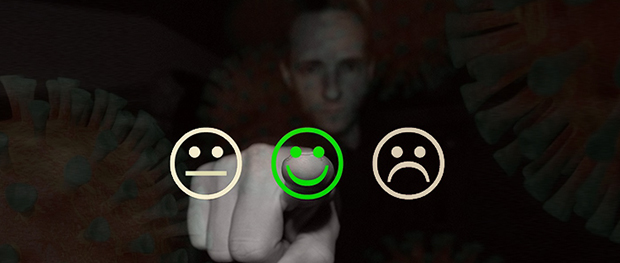
Finding Pandemic Silver Linings
by DCDS
Written by: Aline Speer, DDS, MS (Dallas County Dental Society Member)
My husband and I passed some of our Covid lockdown time watching movies. He introduced me to Up in the Air, which he defended as about the most chick-flicky film he’d ever admit to liking. George Clooney plays Ryan Bingham, a corporate “downsizer” hired by companies to break the news to their employees that they’re being downsized or fired.
Bingham seemed to give every downsized employee the same canned talk in order to spin a silver lining into a very anxiety-provoking situation for them: “Look at this as an opportunity. Maybe you can now pursue your real dreams. Chef? Architect? Artist? More time with family?”
As we watched Brigham fire employee after employee at the beginning of this pandemic and lockdown, I could not help but think about how the advice Clooney’s character gives the unfortunate souls sitting across the cheap office furniture from him related to our present moment in history. What opportunities may this national crisis offer each of us?
While neither I nor any of my dentist friends with whom I’ve discussed this question has any interest in pursuing a different career during this pandemic, I think it would do us all some good to challenge ourselves and each other to contemplate what good can come of this unwelcome crisis for each of us individually and collectively. Might we look back on this period as one in which we survived and thrived, and emerged all the stronger for it?
Growth is a byproduct of stress and adversity. Sometimes growth can feel like a beat down. CrossFiters will understand the power of a voice reminding us of the rewards on the other side of a painful, limit-pushing experience.
If you look back on your life, you may realize that you grew the most when you were challenged. Ironically, growth may feel like a fall. Those who realize what that fall means are the ones who rebound faster and stronger.
This capacity for reflection breeds resilience, which is the ability to recover quickly from difficulties. It is toughness. The noun, resilience, meaning “the act of rebounding,” was first used in the 1620s and was derived from “resiliens,” the present participle of Latin “resilire,” “to recoil or rebound.”
The quality of resilience can prove to be critical in determining whether we will emerge stronger from stressful times of adversity or whether we will tilt toward depression or PTSD. After all, from where does our resilience come? Here is what you need to know to be fully conscious and intentional about where you stand on the resilience scale.
Resilience is in part genetic, as some are born hardwired to exhibit this trait. But resilience is a complex construct with multiple factors adding to its shape, including epigenetic changes, one’s upbringing, faith/moral compass, and specific personality traits. Resilient people will consistently demonstrate they have the following personality traits in common: optimism, mindfulness, humor, prosocial behaviors, active coping (use of techniques to control stress) and cognitive reappraisal (ability to monitor, identify, and reframe negative thoughts into positive ones). It is crucial that we be mindful of the factors that make each of us resilient in order to grow through adversity.
While there is no shortage of platitudes in our language marrying hardship to growth (“no pain no gain”, “what doesn’t kill us makes us stronger”, etc.), I’d like to leave you with an especially apt example from crustaceans: as lobsters grow, their shell becomes confining and uncomfortable. Being uncomfortable signals the lobster to react to the pressure in order to grow. It will then shed its shell in favor of a larger one to more comfortably house its body.
In light of the many stressors imposed on us by the pandemic, I’d encourage us all to consider whether we allow these stressors happen to us or whether we allow them to happen for us. I’d encourage us to consider shedding our limiting circumstances for a bigger shell and leaving nothing up in the air.

